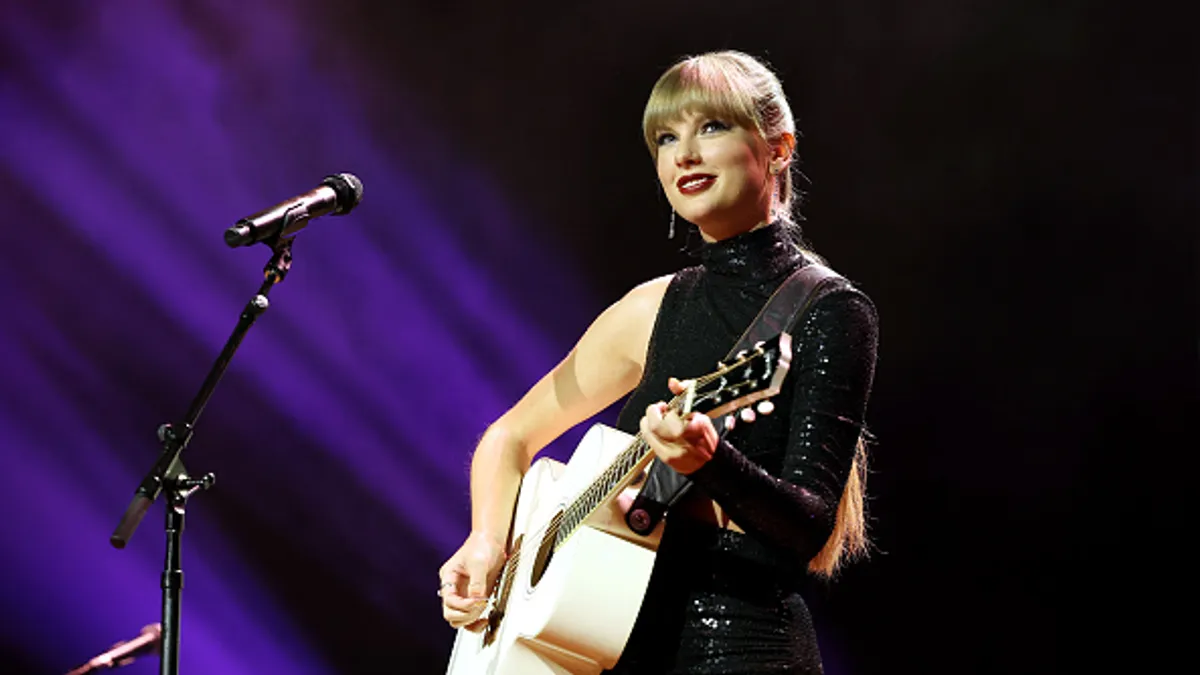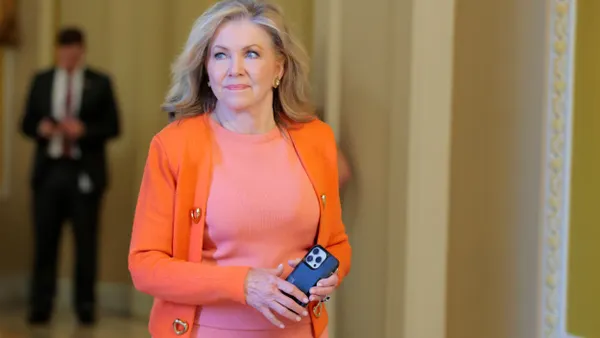Dive Brief:
- Roughly two months after cyberattacks disrupted the presale of Taylor Swift concert tickets leaving hordes of fans disappointed, Joe Berchtold, CFO of Ticketmaster owner Live Nation Entertainment, testified Tuesday before a Senate panel.
- Berchtold largely blamed bots for problems that would-be concert goers experienced in November while attempting to purchase Taylor Swift tickets. However, he also owned up to mistakes that were made by the company.
- “In hindsight, there are several things we could have done better,” Berchtold said at the Senate Judiciary Committee hearing. “And let me be clear that Ticketmaster accepts its responsibility as being the first line of defense against bots in our industry.” In his written testimony, he said the company could make improvements in the process by staggering sales over a longer period of time and setting fan expectations for getting tickets.
Dive Insight:
The hearing, which focused on competition and consumer protection in the live entertainment market, reflected a growing concern that rampant consolidation — coupled with insufficient antitrust enforcement — has weakened competition across the economy, driving up prices and reducing the quality of products and services.
During the Taylor Swift ticket sale, Berchtold said his company was hit with three times the amount of bot traffic it had ever before experienced. “While the bots failed to penetrate our systems or acquire any tickets, the attack required us to slow down and even pause our sales,” he said. “This is what led to a terrible consumer experience, which we deeply regret.”
He said Congress can help by expanding enforcement of the 2016 Better Online Ticket Sales, or BOTS, Act by allowing private parties, including Ticketmaster, to bring civil actions. The statute banned the use of bots for online ticket resale and charged the Federal Trade Commission with enforcement.
He also called for legislation to ban “speculative ticket sales” in which brokers attempt to sell tickets they don't actually own yet and then try to acquire them at a lower price while pocketing the difference. In November, Ticketmaster’s platform suffered a system failure during the pre-sale for Swift’s upcoming “Eras Tour” amid high demand, frustrating many fans who were unable to purchase tickets.
Senate Judiciary Committee members on both sides of the aisle said the incident, which has reportedly resulted in a Justice Department investigation, highlights a larger problem rooted in Live Nation’s market dominance.
“The ticketing and live entertainment markets lack competition, and they are dominated by a single entity: Live Nation,” said Committee Chairman Dick Durbin (D-Ill.).
Live Nation merged with Ticketmaster in 2010 in a deal that joined the country’s largest ticketing company with its largest event promoter, Durbin noted. This resulted in a combined firm with a “competition killing strategy that has left artists and fans paying the price,” he said.
Those concerns were echoed by witnesses, including Kathleen Bradish, vice president for legal advocacy at the American Antitrust Institute, a Washington, D.C. competition advocacy group.
“Live Nation-Ticket Master is an example of, on one hand, a very traditional monopoly in the mode of Standard Oil, and on the other, a 21st century digital player like other online platforms dominating an ever-widening swath of its industry,” Bradish said. She urged Congress to consider legislation that would make it easier to block anticompetitive mergers, among other steps.
Berchtold said it is “simply not true” that ticketing markets are less competitive today than they were at the time of the Live Nation-Ticketmaster merger. The most obvious change is the emergence of the “enormous” secondary ticketing market, he said.













